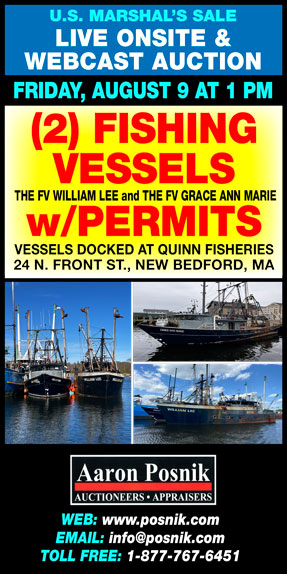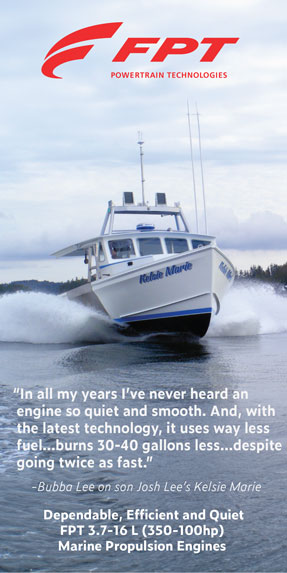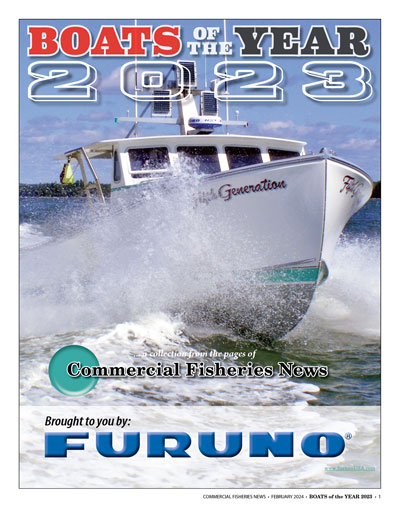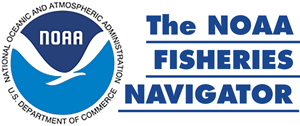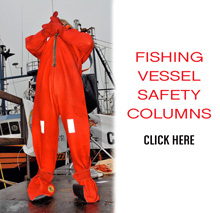Maine young people living on the coast – many with parents who are active fishermen – are excited to be out on the water, following in their parent’s footsteps, having their own boats, traps, and income.
I talked with a number of them recently at the Maine Fishermen’s Forum in Rockport.
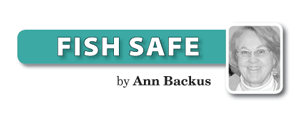 As signs of spring arrive throughout the region, now might be a good time to get those young people into their life jackets and out on the water.
As signs of spring arrive throughout the region, now might be a good time to get those young people into their life jackets and out on the water.
Informal education about how to run the boat and be vigilant – as well as how to set, haul, bait, and offload – can obviously be a valuable introductory experience for any young person.
Several years ago, Maine established an apprenticeship program in the lobster fishery that enables young people to work toward a fishing license. The program was extended last year to include folks up to age 23.
This program incorporates both informal and formal education. The informal education consists of 1,000 hours working with licensed fishermen over a minimum of two years. The formal education component is made up of a mandatory US Coast Guard drill instructor course and the requirement that the aspiring fishermen be full-time students until high school graduation or GED is achieved.
Anyone seeking to be in the apprentice program after high school must be enrolled at least 50% of the time in a post-secondary program.
This set-up helps ensure that future fishermen are well-acquainted with fishing practice and the safety and regulatory aspects of fishing.
As a result of the schooling requirements, they also have an academic background that they can apply to fishing, the business of fishing, or that can help them transition to a different sector of the economy in the future.
Recently, a new program was initiated under the auspices of the Center for Maine Coastal Fisheries, formerly known as Penobscot East Resource Center (PERC).
Eight fishing community high schools in Maine now offer the Eastern Maine Skippers Program, an academic program that runs parallel to the standard high school curriculum and meets the state standards for high school content.
Through a project-based approach, students interact with fishermen, scientists, industrial, and community mentors to learn about the marine environment, the “business” of fishing, and the importance of collaboration and leadership in this challenging and rapidly-changing industry.
According to Paul Molyneaux, the coordinator for the program, the following projects are ongoing this year:
• Vinalhaven – growing kelp on longlines in Carver Pond;
• Deer Isle/Stonington – designing a low-impact shrimp beam trawl;
• George Stevens Academy – comparing the wild scallop harvest with scallop aquaculture;
• Ellsworth High School – modeling a seaweed biofuel industry on the coast of Maine;
• Mount Desert Island – testing water quality and collecting data on smelt returns;
• Narragaugus – making a documentary comparing scallop diving and scallop dragging; and
• Jonesport-Beals – developing a growout system for Arctic surf clams that also traps green crabs.
The students will present the results of these projects on May 25 at a public event at the Grand Theatre in Ellsworth.
To learn more visit <http://grandonline.org/>.
This inspiring and innovative program has the breadth and depth that allows young fishermen to become articulate about the challenges of fishery management, the concepts of coastal stewardship, and to gain confidence in their ability to work collaboratively.
In the words of Molyneaux, “This program develops leaders that will help ensure that Maine’s fishing communities remain economically healthy because the marine environment is ecologically sustained.”
The Eastern Maine Skippers Program is privately funded through a grant from the J.T. Gorman Company. Additional funding has been provided by foundation funding from the Betterment Fund, the Long Cove Foundation, the Eaton Foundation, by an additional grant from the Maine Lobster Research and Development Fund, and through financial and in-kind contributions from individuals and corporations.
Additional information is available at <www.coastalfisheries.org>.
Ann Backus, MS, is the director of outreach for the Harvard School of Public Health’s Department of Environmental Health in Boston, MA.
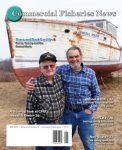 To get the MAY 2017 issue of Commercial Fisheries News, please choose from the following options:
To get the MAY 2017 issue of Commercial Fisheries News, please choose from the following options:
• BUY a Single PRINT edition of CFN that is delivered by MAIL. PRINT EDITION
• Quickly enjoy ONLINE access with our Hi-DEF flip-book. PURCHASE THIS ONLINE EDITION
• Shop the Online ARCHIVE
(Read online flip-book immediately with purchased access key and download a copy for yourself to keep. Not sure if it works for you? Try a FREE SAMPLE HERE.)
• SAVE BIG when you SUBSCRIBE!


